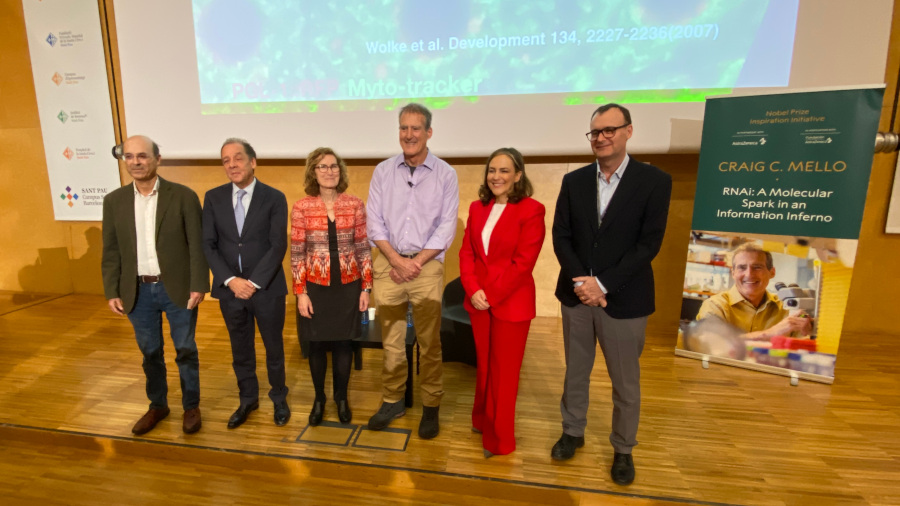Nobel Laureate Craig C. Mello recalls the discovery of RNA interference
American researcher Craig C. Mello, who was awarded the Nobel Prize in Medicine or Physiology in 2006 for his discovery of the RNA interference, gave a conference on 5 November entitled "RNAi: A molecular spark in an information inferno" at the Hospital de Sant Pau.

Professor Mello, who was presented by UAB Vice-Rector for Research Assumpció Malgosa as a "pioneering spirit who is an inspiration to all students", described the research and challenges faced before and after being awarded with the Nobel Prize, which he shares alongside fellow American pathologist Andrew Fire. He also spoke of the discovery of RNA interference, a fundamental mechanism in controlling the flow of genetic information.
The Nobel Prize winner explained how it all began in 1977 when he read in the newspapers the discovery of a bacterium that produced the insulin gene, which surprised him and made him ask himself: "How is it possible that organisms as different as bacteria and humans have genes in common? Isn't it incredible and surprising that the genetic language is the same?" This motivated him to dedicate himself to genetic research to understand how different organisms use information and this led him to pose the question: "Can we introduce information back into an animal?". According to Professor Mello, "Organisms transfer information continuously, information flows horizontally between all living creatures. We are starting to do it now with techniques like CRISPR and genetic modification, but life has been doing this for billions of years".
Mello also highlighted that "to carry out horizontal gene transfer, organisms need guided search mechanisms, similar to when we search for information on the internet, and RNA interference plays a fundamental role in this". These mechanisms based on RNA interference have great therapeutic potential, since RNAi "can detect differences in the genome of a single nucleotide that may be the cause of a disease", he concluded.
The conference, organised by the UAB, the AstraZeneca Foundation, and the Hospital de Sant Pau, is part of the Nobel Prize Inspiration Initiative, a programme managed by Nobel Prize Outreach, to bring Nobel Prizes closer to the scientific community and, in particular, to research personnel in training.